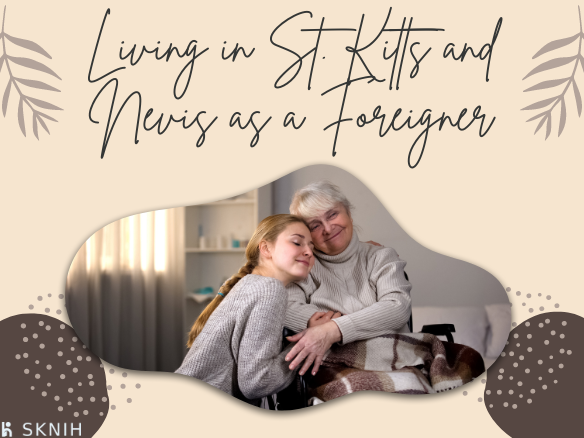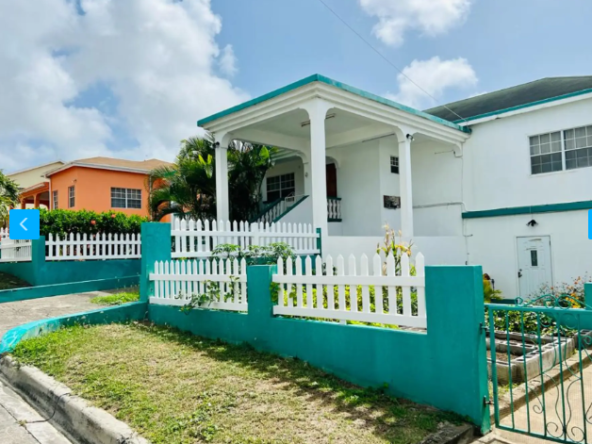St. Kitts and Nevis, a dual-island nation in the Caribbean, offers a unique blend of natural beauty, a relaxed lifestyle, and a welcoming community, making it an attractive destination for foreigners. Whether you’re considering a short-term stay, retirement, or permanent relocation, living in St. Kitts and Nevis presents a range of opportunities and experiences. This guide delves into various aspects of life as a foreigner in this idyllic setting, including the essentials of daily living, real estate investment, and integration into the local culture.
Cost of Living
The cost of living in St. Kitts and Nevis can vary depending on lifestyle choices and location. Generally, it is relatively affordable compared to many Western countries, though certain imported goods can be expensive due to shipping costs.
Housing: Rent for a one-bedroom apartment in the city center of Basseterre, the capital, can range from $800 to $1,500 per month, while outside the city, prices drop to $600-$1,000. For those considering purchasing property, real estate investment is a viable option, particularly through the Citizenship by Investment (CBI) program, which requires a minimum investment of $200,000 in government-approved real estate.
Utilities: Monthly utilities (electricity, water, gas, garbage collection) for an 85 m² apartment typically cost around $150-$200. Internet services average about $50-$100 per month, depending on the package and provider.
Groceries and Dining: Local markets offer fresh produce at reasonable prices. A basic grocery bill for one person might be around $300-$500 monthly. Dining out can range from affordable local eateries at $10-$20 per meal to higher-end restaurants at $40-$100 per meal.
Healthcare
Healthcare in St. Kitts and Nevis is accessible and reasonably good, though it may not match the standards of more developed countries. The main hospital on St. Kitts is the Joseph N. France General Hospital, with several private clinics and smaller hospitals available as well.
Health Insurance: It is advisable for foreigners to have health insurance that covers medical evacuation, as certain specialized treatments may require travel to other countries. Various international insurance providers offer plans tailored to expatriates.
Emergency Services: Emergency services are available but can be limited in capacity. For critical emergencies, air evacuation to countries like the United States or Canada is sometimes necessary.
Education
For families moving to St. Kitts and Nevis, education is a key consideration. The islands offer a range of schooling options.
Schooling Options: There are public schools, private schools, and international schools. Private and international schools often follow the British or American curriculum and are preferred by expatriates for their higher standards and smaller class sizes.
Higher Education: The University of Medicine and Health Sciences (UMHS) and Ross University School of Veterinary Medicine are notable institutions, that attract international students and faculty.
Extracurricular Activities: Schools provide various extracurricular activities, including sports, arts, and music, contributing to a well-rounded education.
Employment and Business
Employment opportunities for foreigners can be limited, often centered around tourism, education, and healthcare.
Job Market: The tourism industry is the largest employer, with jobs in hospitality, travel services, and retail. Teaching positions at international schools and medical roles are also in demand. Work permits are required for most jobs and are typically arranged by the employer.
Starting a Business: The government encourages foreign investment, and starting a business can be relatively straightforward. Popular sectors include tourism, real estate, and agriculture. The process involves registering the business, obtaining necessary licenses, and complying with local regulations.
Remote Work: With good internet infrastructure and a growing expat community, St. Kitts and Nevis is becoming a viable location for digital nomads. Co-working spaces and business support services are available.
Culture and Lifestyle
St. Kitts and Nevis boast a rich cultural heritage influenced by African, Caribbean, and European traditions.
Local Culture: The islands celebrate numerous festivals, such as Carnival in December and January, and Culturama in August. These events showcase local music, dance, and cuisine, providing a deep insight into the vibrant culture.
Social Scene: Expats will find a friendly and welcoming community. Socializing often revolves around beach gatherings, dining out, and community events. Joining local clubs and organizations can help in building a social network.
Cuisine: The local cuisine features a mix of Caribbean flavors with dishes like goat water (a hearty stew), saltfish, and coconut dumplings. Seafood is abundant, and fresh tropical fruits are readily available. Dining options range from casual beachside shacks to upscale restaurants.
Recreation and Leisure
The natural beauty of St. Kitts and Nevis provides ample opportunities for outdoor activities.
Outdoor Activities: Popular activities include hiking Mount Liamuiga, exploring the rainforest, and water sports such as snorkeling, diving, and sailing. The islands’ beaches, like Pinney’s Beach and Frigate Bay, are ideal for relaxation.
Tourist Attractions: Key attractions include Brimstone Hill Fortress, a UNESCO World Heritage site, the St. Kitts Scenic Railway, and botanical gardens. These sites offer a glimpse into the islands’ history and natural beauty.
Fitness and Wellness: Numerous gyms, yoga studios, and wellness centers cater to those looking to maintain an active lifestyle. Wellness retreats and spa services are also popular.
Transportation
Getting around St. Kitts and Nevis is relatively easy.
Public Transport: Public buses and minivans are common, offering affordable transportation. Taxis are widely available, though it’s advisable to agree on fares beforehand as they do not have meters.
Driving: Renting or purchasing a car is an option for greater convenience. Driving is on the left-hand side of the road. Foreigners can use their international driving permits for up to three months, after which a local permit is required.
Air Travel: The Robert L. Bradshaw International Airport in St. Kitts and Vance W. Amory International Airport in Nevis connect the islands to major cities in the Caribbean, the United States, Canada, and Europe.
Safety and Security
St. Kitts and Nevis are generally safe, with lower crime rates compared to many other Caribbean destinations.
Crime Rates: Petty crimes, such as theft, can occur, especially in tourist areas. It is advisable to take standard precautions, like not leaving valuables unattended and being aware of your surroundings.
Natural Disasters: The islands are in a hurricane zone, with the season running from June to November. Adequate preparation and awareness of evacuation procedures are important for safety during these periods.
Immigration and Citizenship
For those considering a long-term stay, understanding immigration policies is crucial.
Residency Permits: Visitors can stay for up to 90 days without a visa. For longer stays, various permits are available, including work permits, student visas, and residency permits for retirees.
Citizenship by Investment: The Citizenship by Investment (CBI) program allows foreigners to obtain citizenship through a minimum real estate investment of $200,000 in government-approved properties or a $150,000 contribution to the Sustainable Growth Fund. This program offers benefits such as visa-free travel to over 150 countries and the right to live and work in St. Kitts and Nevis.
Environmental Considerations
St. Kitts and Nevis are committed to environmental sustainability.
Conservation Efforts: Initiatives include protecting marine ecosystems, promoting sustainable tourism, and renewable energy projects. The islands have several protected areas and national parks.
Flora and Fauna: The islands are home to diverse wildlife, including vervet monkeys, sea turtles, and numerous bird species. The tropical climate supports a variety of plant life, from rainforests to coastal mangroves.
Community and Expat Life
Integrating into the local community can enhance the living experience.
Expat Communities: Active expat groups and clubs offer support and social opportunities. Online forums and social media groups are also valuable resources for connecting with other expats.
Integration: Learning some basic phrases in the local dialect and participating in community events can help in blending into the local culture. The people of St. Kitts and Nevis are known for their friendliness and hospitality, making it easier for foreigners to feel at home.
Technology and Communication
Staying connected is essential for both personal and professional life.
Internet and Mobile Services: Reliable internet is available across the islands, with various providers offering different packages. Mobile services are also robust, with good coverage and affordable plans.
Digital Infrastructure: The government is investing in e-government initiatives to streamline services like tax payments, business registrations, and permit applications online, making it easier for residents to access services.
Conclusion
Living in St. Kitts and Nevis as a foreigner offers a unique lifestyle characterized by natural beauty, a relaxed pace of life, and a welcoming community. Whether you are looking to invest in real estate, enjoy a tropical retirement, or simply experience a new culture, St. Kitts and Nevis provide ample opportunities for a fulfilling life. By understanding the cost of living, healthcare, education, employment, and other key aspects, you can make an informed decision about making this Caribbean paradise your new home.



